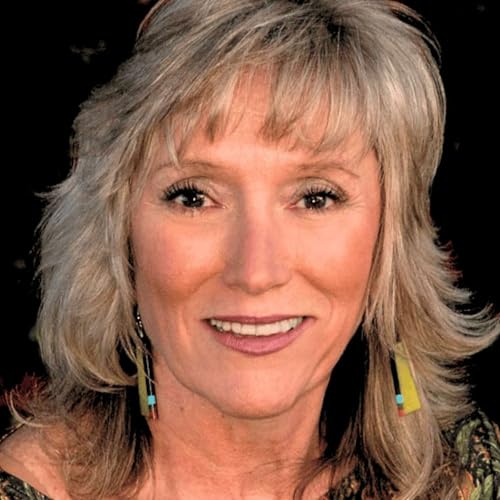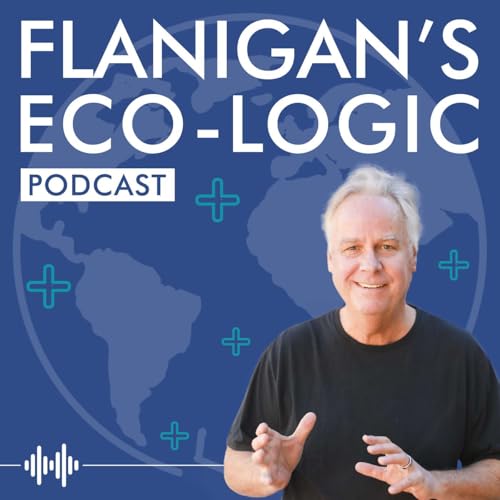250. A big number. A lot of podcast episodes! Flanigan's Eco-Logic hit this major milestone in December.
Sierra Flanigan and Skye Flanigan, Ted's daughters host this milestone edition. They draw out the good, the breadth of topics and featured guests... and even some of the biggest blunders!
"So what does this milestone mean to you Dad?" Ted thanks his daughters for urging him to shift from publishing a monthly newsletter -- which he did for 40 years -- and to create a podcast. "After all Dad, you love to talk, you are bull of BS, and you know so many professionals in this space! If you can just get to 10 podcasts, you'll be off and running," they said then. No one imagined hitting the 250 mark!
Ted talks about how the podcast has enriched his life. Yes, it takes a lot of work, but how amazing it is to have the privilege to interview and network with so many inspired and inspiring individuals... over 200 great guests with valuable perspectives all.
Skye notes that the podcast has featured quite a number of "big wigs" Yes, notes Ted. It's been an honor to converse with so many chief executive officers, executive directors, a mayor, a U.S. Representative... even a Chinese billionaire. Featured guests include Gina McCarthy, Mary Nichols, Mike Peevey, Denis Hayes, and recently Jon Creyts, the Executive Director of Rocky Mountain Institute where Ted began his career. Ted also discusses his international guests, beaming in from Tahiti, Dubai, Nairobi, Scandinavia, and Australia... covering topics such as ocean health, "slow fashion," and energy access in the developing world. He thanks repeat guests including Jigar Shah, Steve Lewis, Jonathan Parfrey, and Evan Mills.
The informal conversation touches on over 50 guests... from grubstaking with Henk Van Alphen, to recycling the unrecyclable with Tom Szaky, to much more efficient electric transmission lines with Dr. Jason Huang, and watershed health with TreePeople's Amanda Begley. Ted notes Rebecca Tickell's Big Picture Ranch films on the soil and regenerative agriculture, and Jack Gro... the NFL's sustainability officer.
The breadth of issues is what makes the podcast fresh and interesting for listeners. Ted discusses his view of sustainability and the taxonomy he has developed that address what he calls the spheres of sustainability... energy, water, transportation, the built environment, greenhouse gases, waste management, food and agriculture, and health and wellness. Topics covered include climate music, wildlife crossings, oyster farming, sustainable energy utilities, coffee, tea, the Aspen Ski Company's methane capture, and biophilic design with former colleague Bill Browning.
Sierra has hosted Eco-Logic's 17 crash courses in which she interviews Ted, together working to take challenging topics and to relate them in interesting and digestible ways. These include courses on offshore wind, vehicle-to-grid integration, microgrids for energy resilience, net billing, and most recently a course on combusting green hydrogen. More to come! Ted threatens to tackle power factor in an upcoming episode... a complex nuance of power system engineering.
When asked, Ted presents a few key lessons learned. First off, be prepared. Then. like journalism, kick off with the meat of the matter. Not to much chit-chat! Then hang loose. And yes, there will be blunders.... He recounts some of those with a chuckle.
The conversation ends with thanks to all who have been instrumental in making the podcast a success: Sierra Flanigan, Skye Flanigan, Alizeh Siddiqui, and Bill Flanigan, with special recognition to Eco-Logic's podcast coach, Rhys Waters from Podstarter in Nova Scotia. It's a team effort, with lots of parts. Ted laments that recording the conversations is the least of it!
In closing Ted again thanks his wonderful guests and encourages listeners to send nominations for more of them. "We've had so many great guests that we'd never heard of including recent ones like Tom Chi, Ralph Bianculli, Rinaldo Brutaco, John Belizaire, Chance Claxton, and Heather White. Bring 'em on! We're now working on the next 250!"
 35 mins
35 mins 34 mins
34 mins 31 mins
31 mins 34 mins
34 mins Jan 26 202636 mins
Jan 26 202636 mins Jan 19 202633 mins
Jan 19 202633 mins 34 mins
34 mins Jan 5 202631 mins
Jan 5 202631 mins
